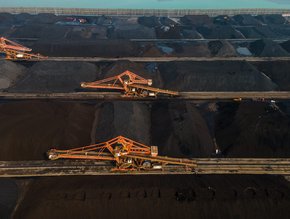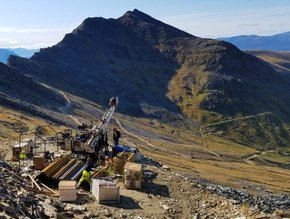RUSAL aluminium smelter switches to EcoSoderberg technology

The EcoSoderberg process uses a new, more ecologically sound design in its reduction cells, improving the exhaust fuel removal system. This ensures a high level of hermetic sealing, and an extremely efficient anode paste composition. As a result of this process, emissions are reduced, particularly for tarry materials.
The EcoSoderberg process was developed by RUSAL’s own Engineering and Technology Centre, with an investment of $74mn. It is the latest in a series of projects to modernise the Krasnoyarsk aluminium smelter (KrAZ) and make it more environmentally-friendly, on which over $390mn have been spent since 2004.
RUSAL’s CEO, Evgenii Nikitin, explained that RUSAL are rolling out the EcoSoderberg technology at its other main smelters: “The introduction of the EcoSoderberg process is a key part of the Company's modernization program. At the moment, in addition to KrAZ, the process is being introduced at RUSAL's other smelters, such as BrAZ, IrkAZ, NkAZ and VgAZ. In total, we plan for 400 reduction cells across five smelters to change over to the new process this year. A new system of gas treatment has improved hermetic sealing of the cells, allowing us to effectively catch more than 99% of fluorides, 99.5% of benz (a) pyrene, and at least 96.5% of sulphur oxide. The next stage of our retrofitting efforts will involve deployment of inert anode reduction cells”.
The environmental programmes launched in Krasnoyarsk in 2004 have resulted in a 38% reduction in emissions, with fluoride emissions, in particular, cut by 76%. Investing in the best available global technologies, such as EcoSoderberg, has been the second phase of this programme.
RUSAL is the global leader of the aluminium industry, and last year produced almost 6% of all the aluminium mined worldwide. RUSAL is headquartered in Moscow, Russia, and operates in 20 countries on five continents.






